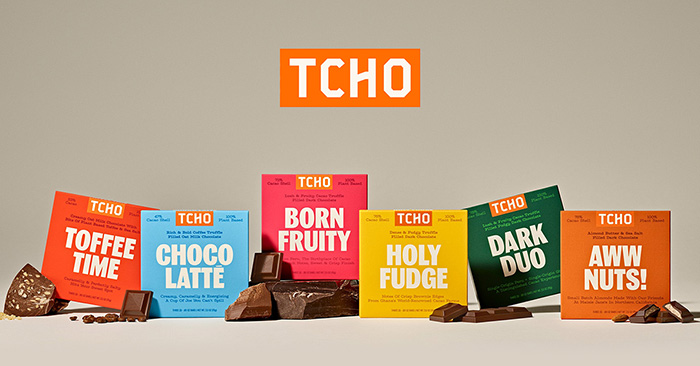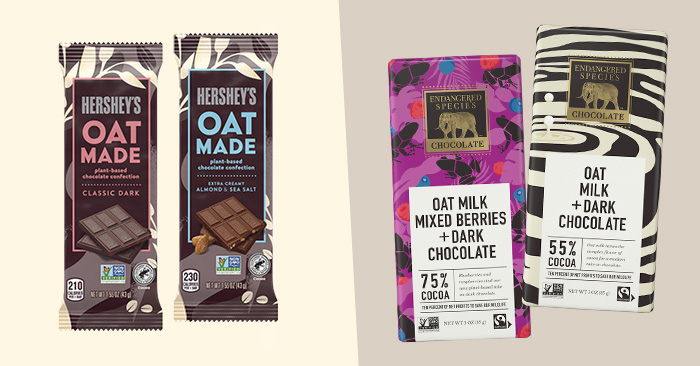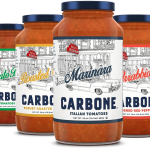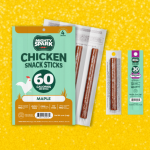Chocolatiers Look to Embrace Plant-Based Trend

The plant-based trend isn’t limited to nuggets and burgers, as over the past year confectionary brands have turned their eyes towards consumers’ rising interest in animal-free products.
This month artisanal chocolate brand TCHO announced it will phase out its dairy-based bars, switching to an oat milk base. The brand’s embrace of vegan chocolate comes as other confection brands both big (Hershey’s) and small (Endangered Species) have begun test launching their own plant-based items.
What did TCHO Announce?
Earlier this month the California-based company announced its intention to reinvent itself as an exclusively plant-based chocolate brand, using a combination of oat milk and cashew butter to achieve its creamy texture. This also extends to its professional baking line, used by restaurants, which will transition to plant-based in early 2022.
Along with the new format, TCHO also debuted new bright color-blocked packaging, now containing three individually wrapped mini bars rather than one large bar. The rebrand was designed to capture some of the brand’s energy, TCHO VP of marketing Josh Mohr said, and emphasize its (now) unique focus on plant-based craft chocolate.
“Over the years we ended up tweaking our packaging at different steps along the way and finally realized we’re just blending in with the masses and didn’t quite stand for anything,” he noted. “Rebranding was about getting back to our founding days where we were a design and cacao-forward brand.”

Who Else is Looking at Plant-Based Chocolate Options?
The chocolate market is pretty sweet: according to data from the National Confectioners Association (NCA), chocolate sales accounted “for about 60% of all confectionery sales in the U.S,” with sales ”rapidly accelerating in 2021.” In 2020, chocolate sales were $15.2 billion dollars, up 4.2% from 2019.
Like TCHO, other artisanal chocolate brands also invested in adding plant-based options in 2021. In February Endangered Species announced that it would add several varieties of oat milk- based options to its line of artisanal chocolate bars and baking chips. Meanwhile, in 2020, Raaka Chocolate launched its own oat milk bar and Finnish chocolate brand Goodio added to its line of oat chocolates.
Aiming to capitalize on this trend and appeal to a wider range of chocolate consumers, in September, Hershey’s announced it was testing its own line of oat-based chocolate. The bars, which are available in Almond & Sea Salt and Classic Dark Chocolate flavors, debuted in select markets.
Unlike TCHO, Hershey’s is also keeping its traditional Hershey’s bars, writing in a blog post that the test would allow the company to “manage uncertainty and measure the additional benefit to both the category and to the Hershey portfolio.” The blog post also noted that the goal was to attract consumers who instead were looking to “smaller niche brands” for plant-based confection options.
Mohr cited the company’s owners, Ezaki Glico — which acquired the brand in 2018 — as the impetus to make the complete jump over the plant-based.
“Ezaki Glico is a fourth-generation family run business that has entirely supported and in many ways pushed us to get back to simplicity in our brand and product offerings, Mohr said, “While many brands would simply play it safe and roll out a plant-based offering alongside their current lineup, they supported a complete transition because we both believe it’s truly what’s best for the business.”
Why Are Brands Looking to Diversify?
Plant-based was one of the hottest trends of 2021, but innovation was largely confined to meat, and to a lesser extent, cheese offerings. With these categories on their way to becoming saturated, other companies are also looking to bring the trend into new aisles of the grocery store.
According to the NCA, among chocolate consumers who look for higher end products, most are “very socially and environmentally engaged.”
Mohr echoed this importance, noting that “environmental stewardship and sustainability have always been part of TCHO’s mission.”
While some brands have been accused of green-washing, promoting already vegan items such as bread or pasta as “plant-based,” chocolate largely is dominated by bars, chips and bites that contain dairy. As consumers emerge from their pandemic diets of comfort foods, many are paying more attention to what they are eating — switching an indulgence to plant-based, can seem like an easy swap, offering a sense of virtuousness while still indulging. It’s a tactic used by other indulgent items — such as ice cream and sugar confection as well.
In order for chocolate brands to succeed in the long term, Mohr said, being “health-conscious is vital.”
Still, taste is of the utmost importance, and going plant-based or low sugar is often an easier jump than sugar-free. 37% of consumers prefer milk chocolate, which has a creamier taste and texture than dark, with Mohr noting the move to plant-based was only possible because TCHO found a way to mimic that mouthfeel.
“We knew oat milk would deliver the creamy experience people know and love about milk chocolate,” he said. “Our plant-based milk is an entirely new experience, one that reminds you of what’s best about milk chocolate yet one that isn’t hiding the fact it’s not trying to be exactly like milk chocolate.”




















